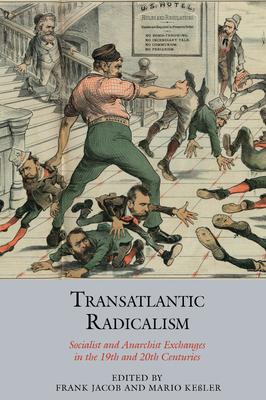The Atlantic Ocean not only connected North and South America with Europe through trade but also provided the means for an exchange of knowledge and ideas, including political radicalism. Socialists and anarchists would use this "radical ocean" to escape state prosecution in their home countries and establish radical milieus abroad. However, this was often a rather unorganized development and therefore the connections that existed were quite diverse. The movement of individuals led to the establishment of organizational ties and the import and exchange of political publications between Europe and the Americas. The main aim of this book is to show how the transatlantic networks of political radicalism evolved with regard to socialist and anarchist milieus and in particular to look at the actors within the relevant processes--topics that have so far been neglected in the major histories of transnational political radicalism of the late nineteenth and early twentieth centuries. Individual case studies are examined within a wider context to show how networks were actually created, how they functioned and their impact on the broader history of the radical Atlantic.
| FindBook |
有 1 項符合
Transatlantic Radicalism: Socialist and Anarchist Exchanges in the 19th and 20th Centuries的圖書 |
 |
Transatlantic Radicalism: Socialist and Anarchist Exchanges in the 19th and 20th Centuries 出版社:Liverpool University Press 出版日期:2024-04-02 語言:英文 規格:平裝 / 270頁 / 普通級/ 初版 |
| 圖書館借閱 |
| 國家圖書館 | 全國圖書書目資訊網 | 國立公共資訊圖書館 | 電子書服務平台 | MetaCat 跨館整合查詢 |
| 臺北市立圖書館 | 新北市立圖書館 | 基隆市公共圖書館 | 桃園市立圖書館 | 新竹縣公共圖書館 |
| 苗栗縣立圖書館 | 臺中市立圖書館 | 彰化縣公共圖書館 | 南投縣文化局 | 雲林縣公共圖書館 |
| 嘉義縣圖書館 | 臺南市立圖書館 | 高雄市立圖書館 | 屏東縣公共圖書館 | 宜蘭縣公共圖書館 |
| 花蓮縣文化局 | 臺東縣文化處 |
|
|
圖書介紹 - 資料來源:博客來 評分:
圖書名稱:Transatlantic Radicalism: Socialist and Anarchist Exchanges in the 19th and 20th Centuries
|











